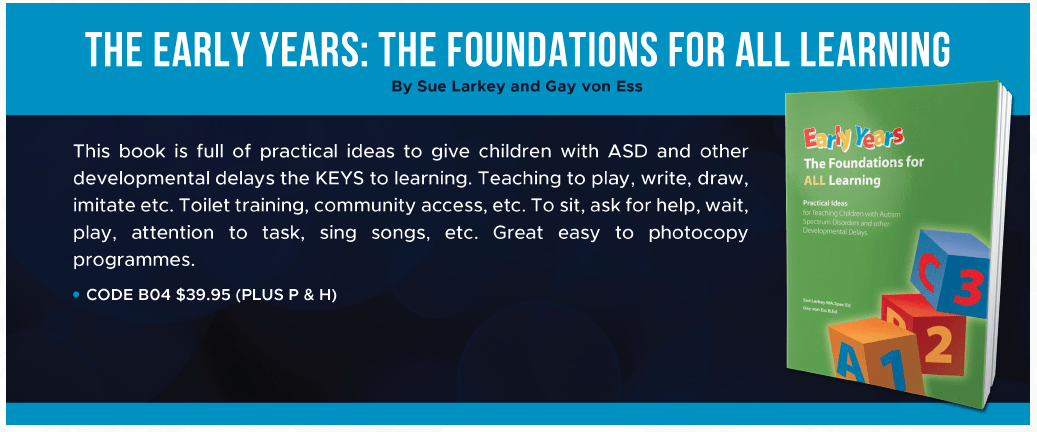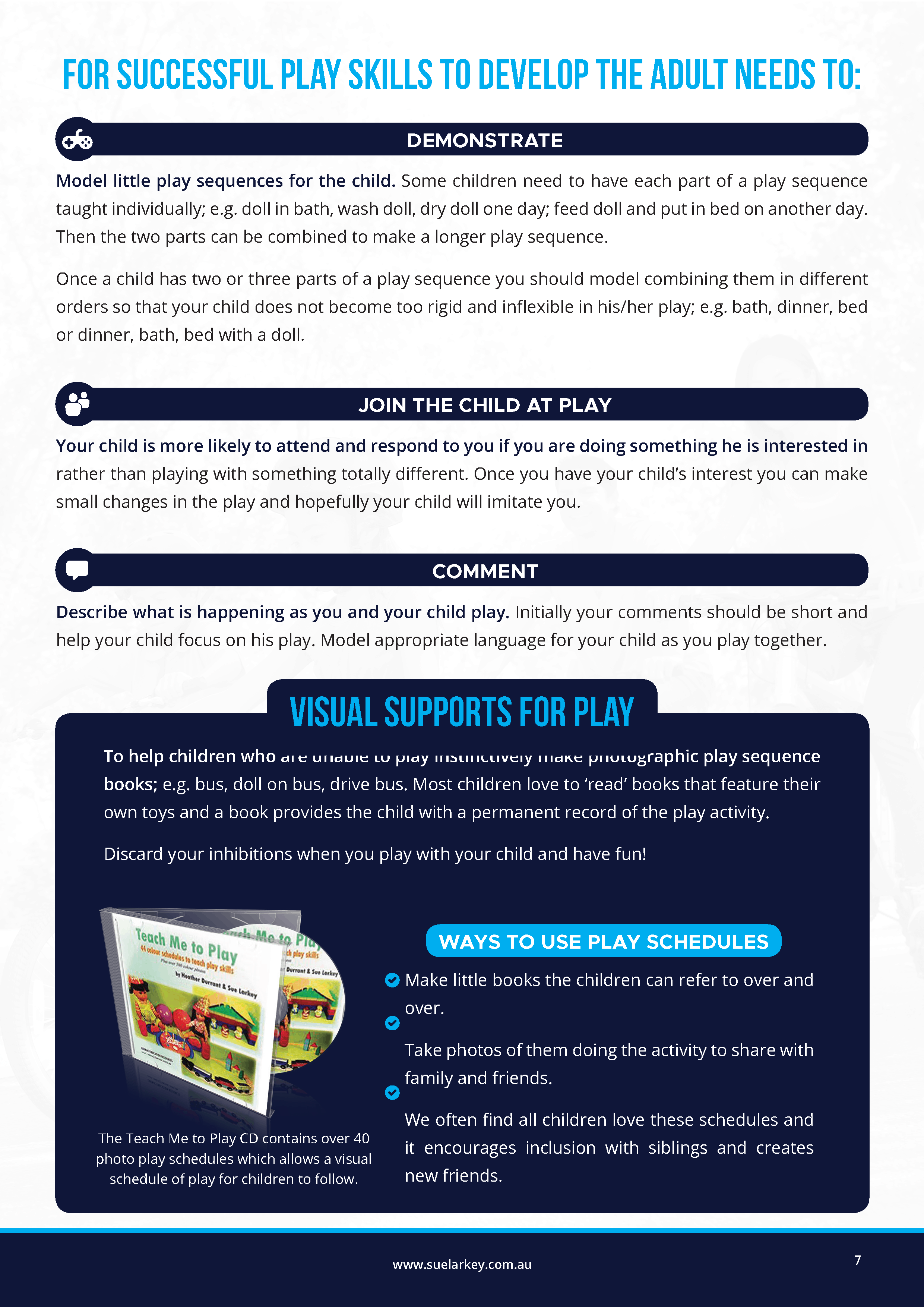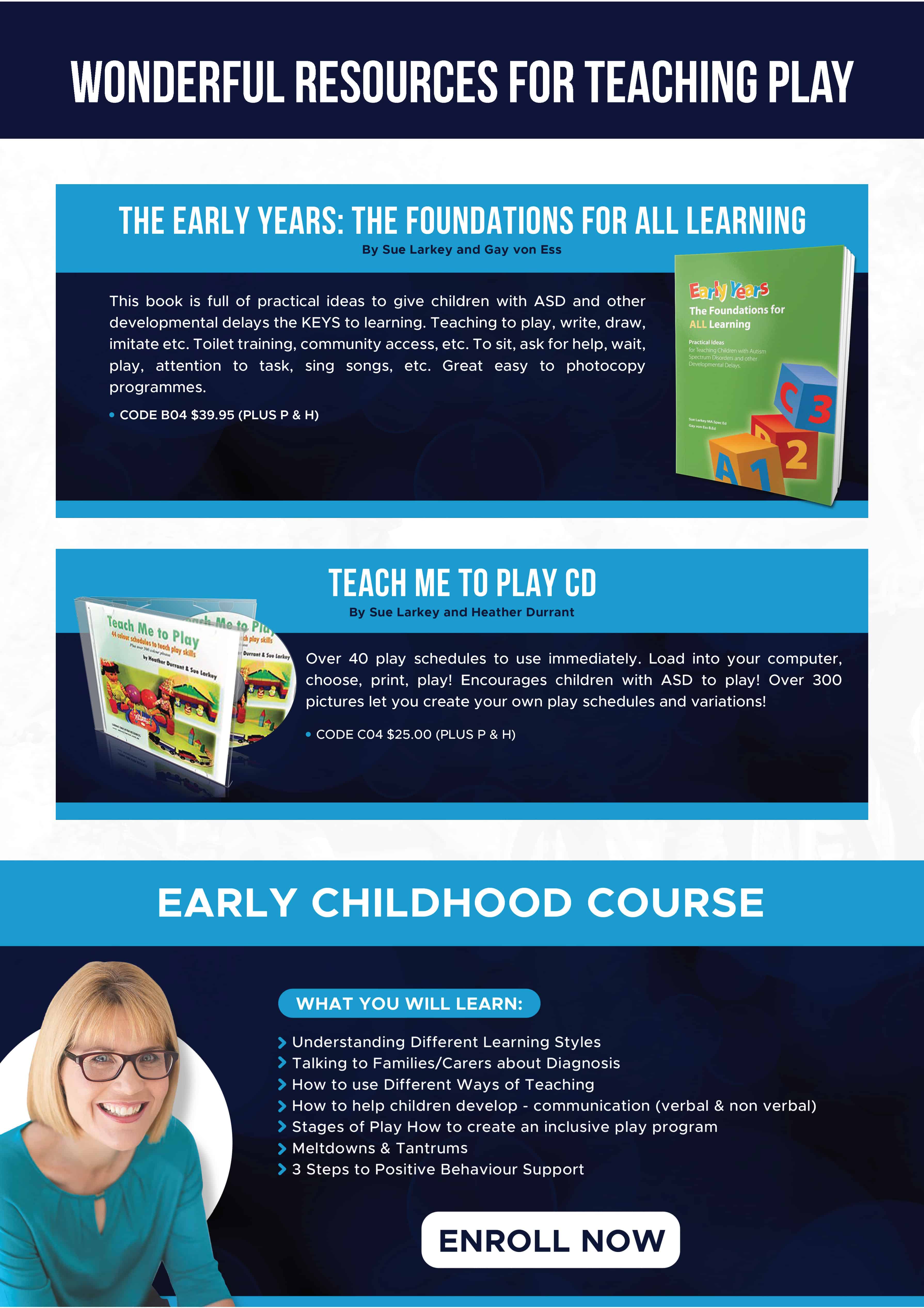Learning Through Play
It is through play that young children learn about and make sense of the world. They experiment with being a Mum or Dad as they act out what they have observed in daily life, e.g. feeding the baby and going to the shops. As these children play they develop their cognitive and motor skills, increase their communication and social ability and above all have fun.
Play for young children with autism is frequently centered on repetitive actions, e.g. spinning car wheelsrather than pushing the car, lining blocks up rather than building towers. They don’t seem to know how to do what comes instinctively to other children. A young child with autism needs to be taught how to play step by step. Be dramatic as you play with your child in order to attract and maintain their attention. Add to the richness of the play by making noises, e.g. ball going down (wheee) doll crying (waa), car horn (beep, beep).


Start with simple cause and effect toys that give lots of feedback for little effort on the child’s part. Ball races and musical toys are excellent starting points. Some children also respond to pop-up toys, though other children are frightened by these due to their unpredictable nature – just when is the toy going to pop up?
Take turns with your child as you play. In addition to being important socially turn taking is critical for the development of appropriate communication. Turn taking can be promoted initially with toys like ball races where turns are short and the child has something to watch even when it is not their turn. Pushing the toy towards your child when it is their turn, and pulling
it over to yourself when it is your turn, helps to make it clearer to the child whose turn it is.




 Sorry we no longer ship items outside Australia. Please consider the digital versions of Sue’s Books –
Sorry we no longer ship items outside Australia. Please consider the digital versions of Sue’s Books – 